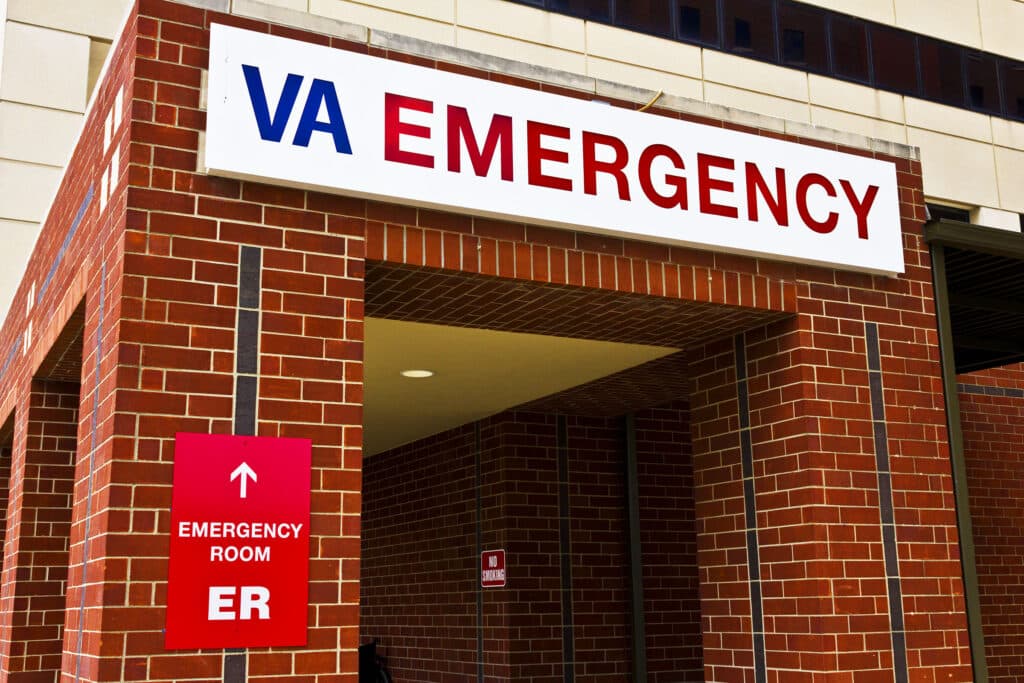
Excerpted from a Stars and Stripes article by Linda F. Hersey
A breakdown in background checks has enabled applicants with criminal drug histories to gain jobs as health care workers with the Veterans Health Administration, federal auditors told lawmakers during a House hearing this week.
Investigations since 2017 by the Inspector General’s Office for the Department of Veterans Affairs and the General Accountability Office found improperly vetted personnel were placed in direct patient care roles at VHA facilities.
Mandated background checks prior to employment often were incomplete, conducted incorrectly or in some cases not done at all, according to testimony Wednesday before the House Committee on Veterans’ Affairs subpanel on oversight and investigations.
“Evidence suggests the VA is failing to follow the law and common-sense policy resulting in background check deficiencies,” said Rep. Jen Kiggans, R-Va., the subpanel’s chairwoman.
There has been little progress to address identified deficiencies and improve the background check process, she said during a two-hour hearing examining failures in the VHA’s pre-employment screenings.
Kiggans said the GAO in February identified 12,569 VHA employees “with indications of a criminal history related to controlled substances.”
Seto Bagdoyan, the GAO’s director of forensic audits and investigative service, told lawmakers that about 1,800 of those identified workers had felony drug convictions.
VHA facilities carry out pre-employment screenings for health care workers that are mandated by law. The three-step process requires candidates to report any criminal violations on job applications and undergo fingerprinting for a national criminal background check by the FBI.
The Defense Counterintelligence and Security Agency investigates job applicants as a final step prior to employment.
In addition, the Drug Enforcement Agency requires VHA medical centers to obtain waivers before employing health care workers with felony drug convictions for positions with access to controlled substances.
But Kiggans said the VHA has never sought a DEA waiver.
“These DEA regulations are in place to prevent drug theft and loss, which is common at the VA unfortunately. Evidence suggests the VA is not properly executing DEA employment waivers,” she said.
The VHA also has yet to implement policies that define and restrict which employees have access to controlled substances — prescription drugs that carry a high risk of abuse and addiction.
But Daniel Galik, who leads the VA’s Office of Identity, Credential and Access Management, said a DEA employment waiver will be in place by March 2024.
He told lawmakers that the VHA is “creating a more structured approach to oversight compliance.”
That approach includes taking steps to verify background checks are “conducted within prescribed timelines and documentation is filed as required.”
“These particular instances that have been noted in [the audits] — we don’t really have a good explanation for how some of these occurred,” Galik said. “We’re trying to improve our oversight compliance and catch those instances where background investigations maybe were deficient or were not performed for whatever reason.”
Rep. Nathaniel Moran, R-Texas, said chronic staffing shortages at VHA facilities impact the quality and timeliness of background checks.
Often there is only one evaluator to conduct background checks at health care facilities with 1,200 to 4,700 full-time employees, he said.
Lack of qualified personnel to manage onboarding “has created an unattainable cycle of staff shortages, causing new staff to enter the VA workforce without completion of appropriate and required vetting,” Moran said.
For the full story, please click here.
